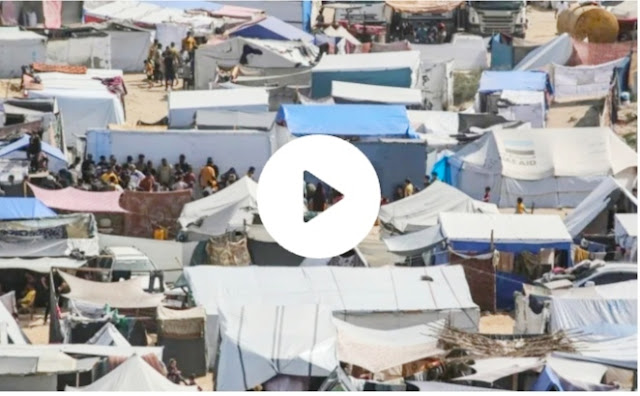The ongoing conflict between Israel and Gaza has escalated into a humanitarian crisis, with over 100,000 Palestinians fleeing the city of Rafah amid relentless airstrikes and ground incursions. The situation underscores the urgent need for international intervention to address the escalating violence and provide humanitarian assistance to those affected by the conflict.
Background: Escalating Tensions and Violence
The recent escalation in violence between Israel and Gaza is rooted in longstanding tensions and unresolved issues, including territorial disputes, access to resources, and the blockade of Gaza. The latest round of hostilities was sparked by clashes in Jerusalem, particularly around the Al-Aqsa Mosque compound, a site sacred to Muslims and Jews. Israeli police crackdowns on Palestinian protesters, coupled with plans to evict Palestinian families from the Sheikh Jarrah neighborhood, fueled anger and unrest, leading to rocket attacks from Gaza and Israeli airstrikes in response.
Humanitarian Crisis Unfolds in Rafah
Amid the intensifying violence, the city of Rafah in the southern Gaza Strip has emerged as a focal point of the humanitarian crisis. With Israeli airstrikes targeting residential areas and infrastructure, tens of thousands of Palestinians have been forced to flee their homes, seeking refuge in makeshift shelters, schools, and other temporary accommodations. The mass displacement has overwhelmed local authorities and humanitarian organizations, exacerbating an already dire humanitarian situation in Gaza.
Impact on Civilians and Infrastructure
The indiscriminate nature of the airstrikes has resulted in civilian casualties and widespread destruction of homes, schools, hospitals, and vital infrastructure. Hospitals and medical facilities are struggling to cope with the influx of casualties, while access to clean water, electricity, and essential services has been severely disrupted. The psychological toll on civilians, particularly children, is immense, with many experiencing trauma and psychological distress due to the constant fear of airstrikes and violence.
Challenges to Humanitarian Assistance
The deteriorating security situation and restricted access have hindered humanitarian efforts to deliver aid and assistance to those in need. Humanitarian organizations face challenges in accessing conflict-affected areas, providing medical care, and distributing essential supplies such as food, water, and shelter materials. The blockade of Gaza further complicates relief efforts, limiting the flow of humanitarian aid and exacerbating the suffering of the civilian population.
International Response and Calls for Action
The escalating violence in Gaza has prompted widespread condemnation from the international community, with calls for an immediate ceasefire and diplomatic efforts to de-escalate the situation. The United Nations, regional organizations, and individual countries have urged both sides to exercise restraint and prioritize the protection of civilians. Efforts to broker a ceasefire and resume peace talks have so far been unsuccessful, prolonging the suffering of civilians and exacerbating the humanitarian crisis.
The Urgent Need for Peace and Reconciliation
As the conflict between Israel and Gaza continues to escalate, the need for a durable and comprehensive peace agreement becomes increasingly urgent. Sustainable peace can only be achieved through dialogue, negotiation, and mutual respect for the rights and aspirations of both Palestinians and Israelis. Addressing the root causes of the conflict, including the occupation, settlements, and blockade, is essential to building a just and lasting peace in the region.


0 Comments